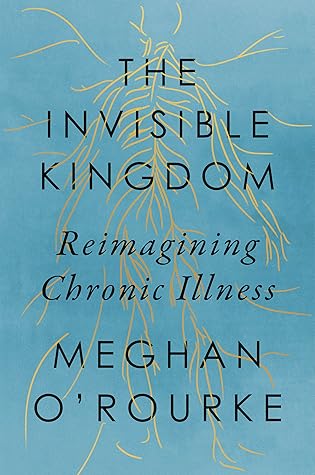More on this book
Community
Kindle Notes & Highlights
Read between
February 19 - February 24, 2023
Because my unwellness did not take the form of a disease I understood, with a clear-cut list of symptoms and a course of treatment, even I at times interpreted it as a series of signs about my very existence.
There is a loneliness to illness, a child’s desire to be pitied and seen. But it is precisely this recognition that is elusive. How can you explain and identify your condition if no one has any grasp of what it is you suffer from and the symptoms wax and wane? How do you describe a disease that’s not always there?
For me the hardest part was not being comprehended, or not believed. “Physical pain does not simply resist language but actively destroys it,” writes Elaine Scarry in The Body in Pain. “To have pain is to have certainty; to hear about pain is to have doubt.” The same was true of all my symptoms, none of which could be seen.
Knowledge brings the hope of treatment or cure. And even if there is no cure, a diagnosis is a form of knowing (the word “diagnosis” derives from the Greek gignōskein, “to know”) that allows others to recognize our experience and enables us to tell its story. I felt acutely the absence of a story I could tell others. Without a story, who—or what—would help me get better?
When tests turn nothing up, the patient is told she is fine, and emerges without answers, questioning everything she thought she knew about her body and her perceptions. I grew practiced in choosing only a few symptoms to tell my doctors about, and I didn’t mention the many other doctors I had seen: physicians often assume patients who “doctor shop” are problem patients. I also quickly learned one of the worst things I could do was to show up prepared with prior medical records.
The first hours of being awake were so awful that I had to devise strategies for enduring them.
Onlookers often respond to the experience of chronically ill people by focusing on the supposed positives, presumably because it makes the pain of witness bearable.
There is a razor-thin line between trying to find something usefully redemptive in illness and lying to ourselves about the nature of suffering. Until we mourn what is lost in illness—and until we have a medical community that takes seriously the suffering of patients—we should not celebrate what is gained in it.
One of the bitterest aspects of my illness has been this: not only did I suffer from a disease, but I suffered at the hands of a medical establishment that, for too long, failed to fully credit my testimony. The U.S. medical system not only failed to diagnose me; it stopped my quest in its tracks. Instead of acknowledging what was wrong with me, the medical system asked my body to behave as the obedient container of a distinctive and previously understood disease rather than as the site of a complex illness it didn’t understand. In the throes of illness, cut off from the life you once lived,
...more


